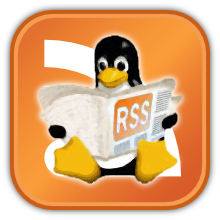 QtGain is a simply frontend for MP3Gain, VorbisGain, AACGain and Metaflac which analyses and adjusts your media files so that they have the same volume without the need to reencode the files.
QtGain is a simply frontend for MP3Gain, VorbisGain, AACGain and Metaflac which analyses and adjusts your media files so that they have the same volume without the need to reencode the files.
Further information about this lossless method can be found at the MP3Gain homepage (http://replaygain.hydrogenaudio.org/) or Wikipedia (http://en.wikipedia.org/wiki/Replay_Gain).
With QtGain you can simplify this job to replay gain your media files. Simply add your files or folders via drag & drop or select a folder with a file dialog.
QtGain starts gaining immediately after adding some files and of course you can add more files while QtGain works on your files.
Files which are already gained and need no recalculating are automatically skipped. Files which cannot processed are automatically listed in a dialog box at the end of the job.
NEW: You can now rename all your folders which contains the files and of course the media files too with QtGain. All you need is to switch on the setting and choose a scheme how the folders/files should be renamed.
NEW: Download Cover Arts and Replay Gain your files at once.
QtGain shows you after processing all files the downloaded covers and you can decide to keep them, load another one or delete it.
You need id3v2 if you want to use the new features.
QtGain is a GUI frontend to four different Linux commandline tools: mp3gain, aacgain, vorbisgain and metaflac. As the names suggest, those tools allow you to adjust the gain of MP3, AAC, Vorbis and FLAC files. What QtGain does is package those four tools in a single interface, while giving you - the user - easy to understand preferences to best tweak your audio.QtGain gives you two main options to consider. The first is the target volume each of your modified files will have. By default it is 89 dB, but that may be raised or lowered according to your own taste. The other main option is whether to perform AlbumGain or TrackGain on your files. TrackGain is similar to the type of compression used on the radio. Every song, no matter what album the music comes from, will have the same relative volume. AlbumGain, on the other hand, acknowledges the fact that while listening to an entire album, some songs are meant to be louder than others.
This is particularly true in classical music. With AlbumGain enabled, the overall volume is raised or lowered according to your target volume, but the differences in volume between album songs is kept intact.
Beyond this, QtGain offers to auto-rename your MP3 files (and the folders that hold them), based on their ID3 tag information. You can rename the files or folders based on patterns you choose, so if you prefer the following style of MP3 naming, you can:
01. Artist - Song.mp3
But if you prefer this, all it takes is a bit of tweaking:
01 Song.mp3
Similarly, folders can be named according to your preference, so if you always keep a folder with both the artist name and album, you can, or if you have individual folders for each album within a folder with the artist name, that can be accomplished as well. All it takes is a bit of experimenting or trial and error.
I was really impressed with QtGain. It has a really sleek interface (once you've set the preferences the way you choose, the main interface is a tiny window, not all that much larger than a a couple postage stamps), and is simple to use. I love the fact that songs can be adjusted on a per-song basis (perfect for mix CDs), or an a per-album basis. The extras such as file renaming and cover art downloading aren't necessary, but help set this apart from the commandline tools QtGain collects in its interface. If you're a Linux user and you find yourself adjusting the volume on your stereo far too often, definitely give this a try.

Custom Search
If you liked this article, subscribe to the feed by clicking the image below to keep informed about new contents of the blog:









0 commenti:
Post a Comment